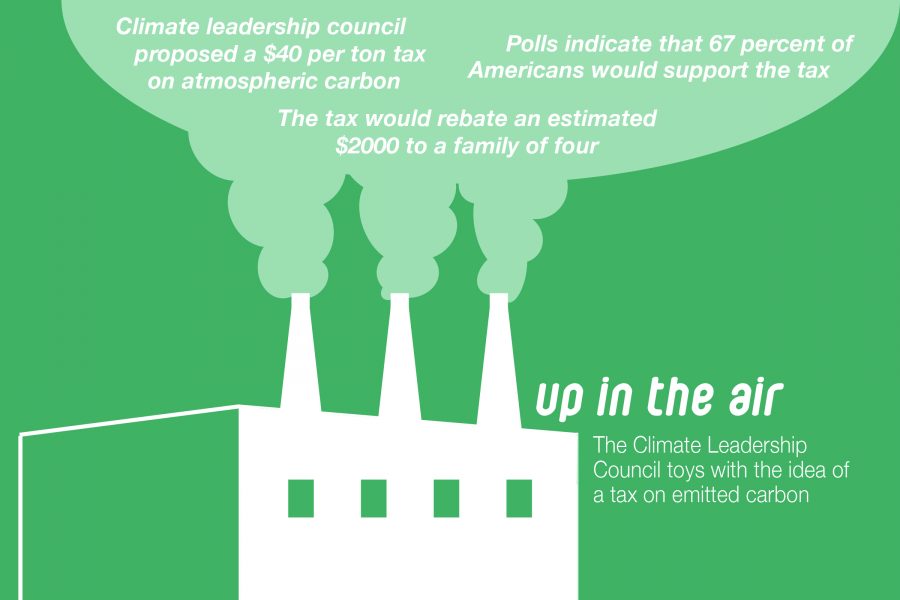The Climate Leadership Council is putting forth a proposal by former Secretary of State James A. Baker III for a carbon tax aimed at reducing carbon emissions. While a carbon tax itself carries many benefits and is one way to push the switch to clean energy, the proposal is deeply flawed, starting with its plan to eliminate a lot of recent regulatory policy made under Obama.
The idea that a carbon tax can stand alone and solve all the issues surrounding climate change is simply inadequate.
The proposal features a $40 per ton carbon tax, mainly on fuel sources such as gas, oil and coal, which make up about 80 percent of fuel use in the U.S. They taxes would be returned in the form of rebate checks to the public with the idea that the dividend would encourage people to use clean sources of energy and fuel-efficient cars. The CLC notes that polls have indicated as many as 67 percent of Americans would support such a plan, included 54 percent of conservative Republicans.
Another aspect of the proposal includes the return of the tax to the public in the form of dividends, where a family of four could receive up to $2000 a year that under the tax. While the price of greener energy, such as solar panels, has decreased over the past few years, this does not come close to covering the cost of installing solar panels, much less that of a fuel-efficient car. This does not even compensate the increased cost of energy. The money collected from the tax would be better used to advance this technology and make it more accessible even through the use of subsidies.
The tax rate would be the same for everyone, which means that this puts a higher strain on lower-income families. Those with higher incomes could absorb the cost more easily and have access to alternative energies like solar. Not only that, it would also place a lot of pressure on smaller oil companies, who are less likely to handle the tax with the same ability that a large oil company such as Exxon Mobil could.
The other key part of this proposal involves the elimination of almost all of Obama’s regulatory policies. This spells disaster when it comes to solving massive issues like pollution and clean water crises. We’ve already seen a step toward deregulation that benefits businesses in the short term while causing long-term destruction with Trump’s reversal of the stream protection rule, which prevents the dumping of coal waste into streams. A carbon tax would do nothing to prevent devastating policy like this one in the future.
The proposal seems like a cop out in order to avoid dealing with any real issues surrounding climate change. The Republicans leading the proposal do not offer a definitive answer on whether they do or do not believe that human action causes climate change. This proposal offers a chance to make it seem like they are concerned, while undoing policy that has real potential of lowering carbon emissions and alleviating the effects of climate change.
A carbon tax is not an inherently bad idea, but it cannot stand alone. Fighting climate change requires efforts on many fronts, and simply increasing the cost of energy does not provide a comprehensive solution. It must work with other policies in order to garner the best results.
Dealing with human-caused climate change requires more than a structurally weak proposal from writers who are not convinced of the science behind it. Enacting a carbon tax along with regulatory policy would effectively push the major changes, such as decreasing carbon emission and pollution — making the switch to cleaner energy more efficient.
Sanchez is a journalism freshman from Austin. Follow her on Twitter @narwhalieee.





















